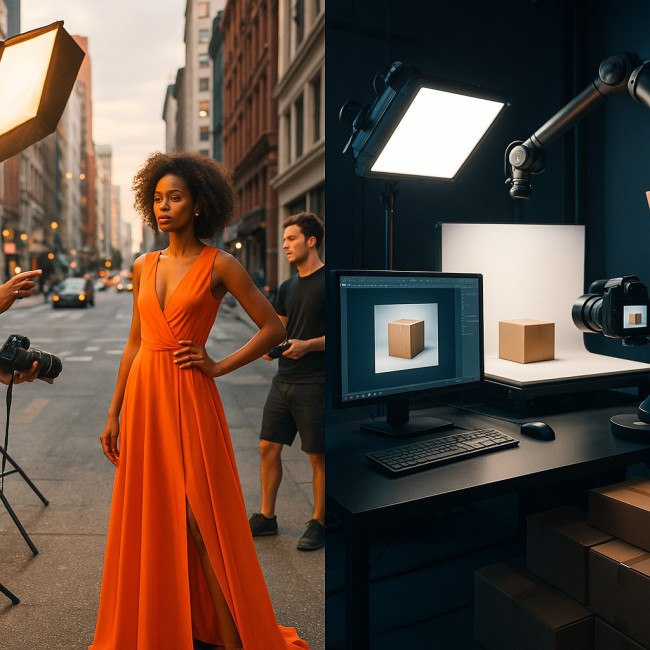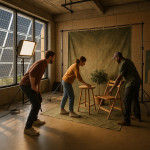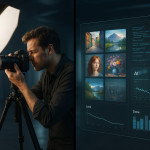Local vs Remote Photographers: Metrics to Compare Cost, Speed and Creative Fit
Wondering whether to hire a photographer who can show up on set or a remote studio that shoots from miles away? This guide breaks down the numbers—cost, turnaround time and creative alignment—so you can choose the model that maximises ROI without sacrificing artistic quality.
Why Compare Local and Remote Photographers?

Both options can deliver stunning visuals, but their workflows differ radically. Local pros bring on-site agility and relationship-building. Remote studios leverage streamlined production pipelines and sometimes AI to slash timelines. Understanding the core metrics below allows marketers, e-commerce managers and creative directors to match the right resource to every brief.
Key Metrics That Influence Your Decision
Cost Benchmarks
Price structures vary from day rates to per-image fees. According to the Peerspace 2023 Photography Rate Report, on-location portrait sessions in major U.S. cities average $1 250 per day, while remote product studios such as Soona start at $39 per image.
| Metric | Local Photographer | Remote Photographer |
|---|---|---|
| Typical pricing model | Half-/Full-day rate + travel | Per image or package tiers |
| Average cost per finished photo | $30–$50 (after edits) | $25–$40 |
| Travel or courier fees | Often required | Usually none (ship products) |
| Revision rounds included | 1–2 | Up to 3 in SaaS-style dashboards |
Need help structuring transparent packages? Our guide on photographer pricing tiers shows how to compare quotes line by line.
Project Speed
Local talent delivers instant set tweaks but may be booked weeks out. Remote services often promise 24–72-hour turnarounds once products arrive. A live calendar, whether embedded in a portfolio or a SaaS portal, is the clearest way to confirm slots and avoid last-minute stress. Learn how live availability calendars push urgent briefs over the line.
Creative Alignment
Matching visual style to brand DNA is non-negotiable. Local pros can scout locations personally, sense ambience and meet stakeholders face-to-face. Remote shooters lean on detailed mood boards, real-time video direction and AI curation to nail style without physical presence. If your campaign requires cross-disciplinary art direction or mixed media, see our roadmap for building cross-disciplinary photo teams.
Source : Soona
Case Scenarios: When Each Option Shines
- Local win: A CEO portrait series requiring brand-coloured sets and instant client feedback.
- Remote win: High-volume e-commerce shoes needing identical lighting across 300 SKUs.
- Hybrid win: Food brand ships products to a remote studio for hero shots, then hires a local photographer for in-store lifestyle images.
How to Gather Reliable Data Before Booking
Use marketplace analytics, portfolio engagement stats and independent reviews. Start with a global photographer directory that displays verified rates, sample galleries and client testimonials. For rapid vetting, follow our playbook on sourcing photographers and verifying credentials.
Interactive Quiz: Who Fits Your Brief?
FAQ
- Can a remote photographer match my brand colours accurately?
- Yes. Ask for a colour-calibration report and request a paid test shot before full production.
- What if my products are fragile?
- Choose remote studios that provide insured shipping labels and photo evidence of unboxing.
- How do I manage time zone differences?
- Set review meetings within overlap hours and use collaborative proofing tools that allow asynchronous comments.
- Are local photographers always more expensive?
- Not necessarily. High-volume remote studios save on travel but may add fees for complex styling that a versatile local pro includes by default.
- How many revision rounds should I negotiate?
- Two rounds are industry standard; add a clause for paid extras to keep scope creep under control.
Ready to Decide?
List your must-have metrics—budget, deadline and creative nuance—then shortlist three candidates of each type. Compare their data side by side and book the one who ticks every box. Your next campaign deserves nothing less.
Next step: Post your brief today and let qualified photographers pitch with hard numbers you can trust.











